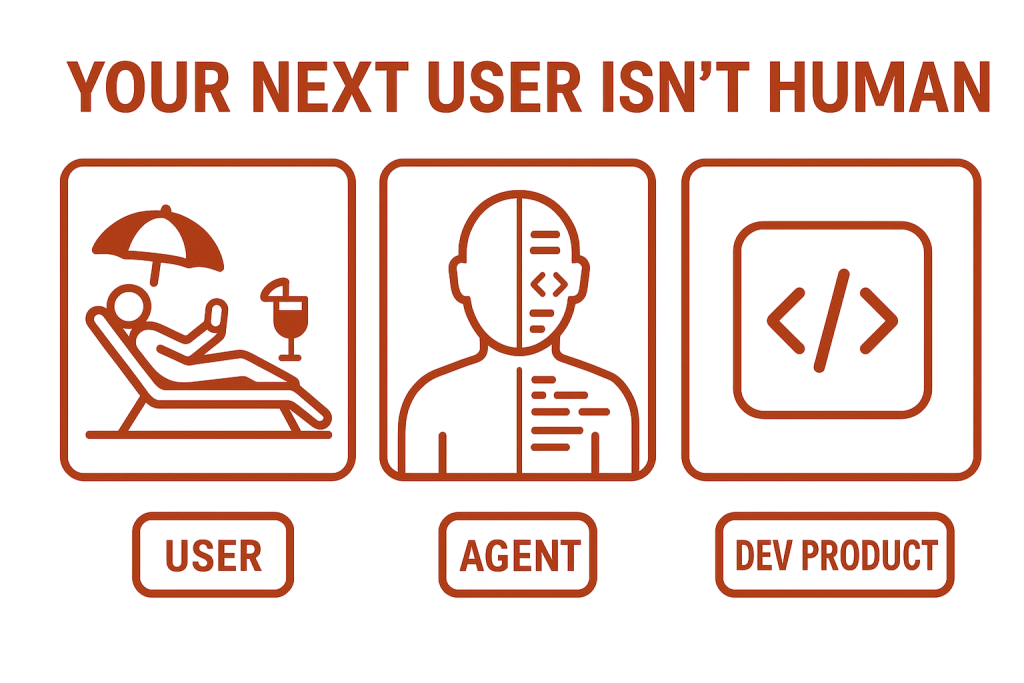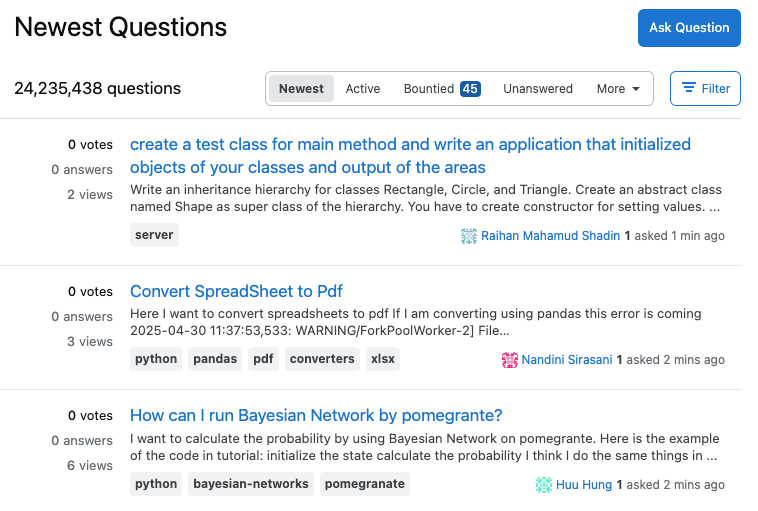- Introduction: The Developer Flywheel is Broken
- The Problem: A Feedback Loop That No Longer Loops
- The Shift: Agents Are Now Your Primary Developer
- The Opportunity: Rebuilding the Flywheel with Spark
- The Larger Shift: From Static Docs to Dynamic Ecosystem Intelligence
- Spark is How We Rebuild Trust in an AI-Native Developer Stack
- Be Among the First to Experience the Future of AI-Native Development

Introduction: The Developer Flywheel is Broken
For over a decade, developer tools and ecosystems have thrived on a simple dynamic: one person hits a problem, solves it, and shares the solution. That knowledge becomes part of the collective memory. Next time, the answer is already there. This self-reinforcing cycle (one we’ve relied on to build and scale every major open-source ecosystem) was powerful because it was public, participatory, and cumulative.

Today, that dynamic is disappearing. Quietly, and without much ceremony, the developer knowledge flywheel is breaking. Not because developers have stopped asking questions, but because the entire loop of how we solve problems, share insights, and improve experiences is being rerouted into private, lossy interactions with AI.
At the same time, a new class of user is emerging. The person reading your documentation, integrating your SDK, or debugging your latest release is increasingly not a person at all—but an agent. Agentic LLM driven systems now act as the primary consumer of developer tooling. And this shift from developers as the user, to agents as the interface, demands a rethinking of how we build, distribute, and evolve developer ecosystems.
The Problem: A Feedback Loop That No Longer Loops
Historically, developer ecosystems improved because we (developers) were loud. We asked questions on Stack Overflow, opened GitHub issues, posted to Discord, and blogged about our experience. If a tool was hard to use or broke in subtle ways, that friction surfaced publicly. Other developers saw it. Maintainers fixed it. The flywheel kept turning.
But as AI has been woven into everyday development, the behavior has changed. When something doesn’t work, we no longer ask the community. We ask a model. And when it hallucinates or misleads us, we try again, tweak the prompt, change approach. Eventually we find something that works. But we rarely write it down. We rarely share it. And we never let the ecosystem know.
This creates a compounding loss: a decrease in observable signals, a degradation in shared knowledge, and a growing gap between what the ecosystem believes is happening and what users are actually doing. The longer this persists, the more brittle and opaque developer experiences become.
Stack Overflow is a clear signal of this change. It was once the gravitational center of the developer universe, drawing over 100 million monthly visits at its peak. Even today, 81% of the global developer population touches it weekly (source). But as the default interaction model moved from web search to agent prompts, Stack Overflow’s traffic dropped 35% in just two years (source). Their pivot toward enterprise knowledge management shows recognition of this shift, but also underlines the missed opportunity to lead in the new agent-centric paradigm. The loss of visibility isn’t isolated to Stack Overflow; it’s endemic to the entire open developer support structure.
And yet, all this is happening while developer velocity is increasing. GitHub reports that Copilot users complete tasks 55% faster, with over 46% of their code now AI-generated. Replit’s Ghostwriter and Codeium’s Windsurf demonstrate similar efficiency gains, with unit testing time down 40% and production code seeing up to 25% performance improvements (source). Satisfaction has also skyrocketed: 95% of developers say they enjoy coding more with AI (source), while 73% report staying “in flow” more consistently (source). This speed and satisfaction is the magnet to AI, but it comes with a tradeoff: a gradual loss of shared visibility into the problems, patterns, and solutions shaping the ecosystem.
The Shift: Agents Are Now Your Primary Developer
One of the most under appreciated changes in the age of AI-assisted development is that the consumer of your documentation is no longer a developer reading it line by line, it’s an agent parsing it programmatically. (Read more about it here.)
This isn’t some hypothetical future. It’s already visible in how tools like Cursor, Copilot, ChatGPT, and dozens of custom assistants are being embedded directly into developer workflows. These agents don’t browse; they retrieve. They don’t read sequentially; they query by intent a vector space. They don’t ask for help when something fails; they try something else. And they do it all invisibly.
For developers, this means building faster but with less feedback. They rely more on the agent than the ecosystem. They debug hallucinations in isolation. They don’t post in forums or open issues. For ecosystems, this means the feedback loop is effectively severed. Usage is happening, but there’s no trail. Documentation is consumed, but errors are rarely surfaced. Issues get solved silently, and solutions never return to the commons.
This new paradigm demands a fundamental rethinking of developer experience. Documentation must be retrievable and verifiable. Examples must be tested and token-efficient. Feedback must come from usage, not from opt-in surveys or post-mortems. In short, we need a new flywheel—one that works in the presence of agents.
The Opportunity: Rebuilding the Flywheel with Spark
Spark is a new layer designed to restore the feedback loop that made developer ecosystems thrive—reimagined for a world where agents are the primary user.
At its core, Spark treats every agent interaction as a learning opportunity. It observes how agents consume your documentation, how they perform integrations, and where they succeed or struggle. When an agent integrates your SDK, Spark can track what patterns were attempted, how long it took, where things broke, and what ultimately worked. That insight becomes part of a shared memory—available to inform and improve the next integration.
This creates a new kind of flywheel: one powered not by posts and pull requests, but by experiential feedback captured passively through usage. When a developer or agent attempts an integration, they benefit not just from official documentation, but from real-world insights gathered across your ecosystem—contextualized, filtered, and optimized for their specific task.
And crucially, this isn’t just a one-way improvement. Spark gives ecosystems back the visibility they’ve lost. You gain live analytics on what parts of your documentation are most used, most error-prone, or most successful. You can see how long it takes for developers to go from intent to success. You can track which examples are working reliably and which need revision. You’re no longer flying blind.
The Larger Shift: From Static Docs to Dynamic Ecosystem Intelligence
Spark doesn’t replace documentation. It evolves it.
The future of developer experience isn’t just about writing clearer guides or producing better tutorials. It’s about recognizing that the interface between your product and your users is now mediated by agents—and those agents need a different kind of support.
They need documentation that is retrievable, verifiable, and adaptive. They need examples that are tested, not just illustrative. They need feedback loops that capture usage, not just intent. And they need a way to build on what others have learned—even if those others were agents too.
For ecosystems, this unlocks a new kind of intelligence. You no longer just publish information—you tune it, monitor it, and learn from it. You get the ability to measure the performance of your developer experience the same way you measure code coverage or product analytics. You gain a memory layer for your ecosystem that compounds over time, makes integrations more reliable, and surfaces issues before they become problems.
Most importantly, you become legible to the next generation of software builders—not just the humans, but the agents they rely on.
Spark is How We Rebuild Trust in an AI-Native Developer Stack
If agents are now the default interface between developers and software, then ecosystems need a way to speak their language.
Spark offers that: a new layer of memory, analytics, and feedback built for the agent era. It gives developers a safer, smarter way to work with new tools. It gives ecosystems the ability to monitor, improve, and distribute knowledge continuously. And it reboots the knowledge-sharing flywheel that made modern software development possible—this time, with agents in the loop.
The developer experience has changed. It’s time the infrastructure around it did too.
Be Among the First to Experience the Future of AI-Native Development
Spark is soon opening early access to a select group of pioneering developers and teams. This is your opportunity to influence the future of developer ecosystems, gain early visibility into cutting-edge insights, and benefit directly from a smarter, more responsive way to work with AI-driven tooling. Spots in our initial cohort are limited — register now to secure your place, we’d love to work alongside you!